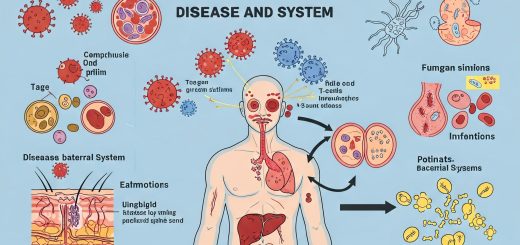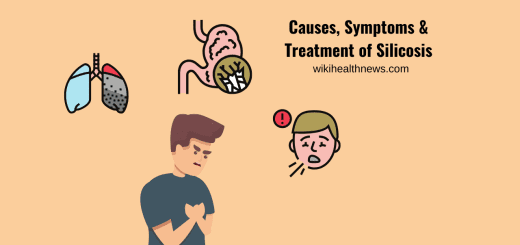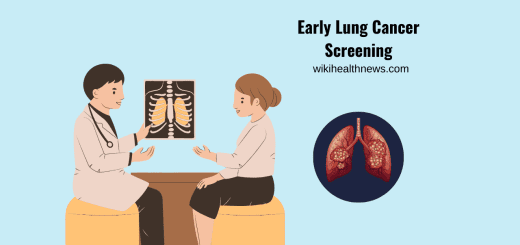Treatment & Complications Of Gastric Ulcer
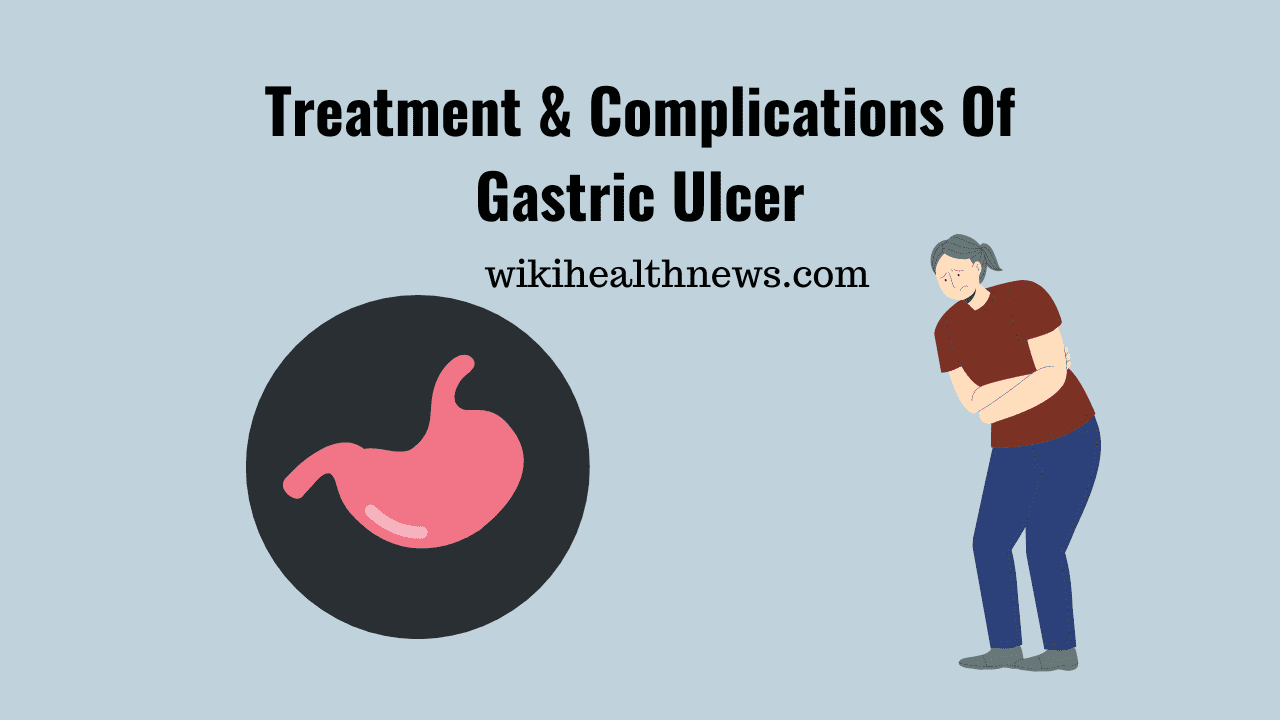
A gastric ulcer also known as stomach ulcer, is an open sore that develops in the stomach lining. Duodenal ulcers and stomach ulcers, both are kind of peptic ulcers. They’re mention as pepsin, which is a digestive juice that are present in the stomach and that will also leak into the duodenum. These juices are risk factor for gastric ulcer disease.
Peptic ulcers develop when the protective mucous lining in the stomach and duodenum has been eroded, which allow gastric acids and digestive enzymes to eat away at stomach and duodenal walls. This results in open sores that are frequently irritated by the acid. When untreated, they can start to cause serious complications, like internal bleeding. More times, they can even create a hole all the way through. This will be medical emergency.
Causes of gastric ulcers:
The two common causes are:
- H. pylori infection.
This bacterial infection affects most of people worldwide. This bacterium mostly lives in the stomach. In many people, it will not cause problems. Their gut immune systems will control that. But some part of those infected has H. pylori overgrowth. The bacteria will multiply, take the stomach lining and causing chronic inflammation and peptic ulcer disease. H. pylori infection is cause with about 60% of duodenal ulcers and 40% of gastric ulcers.
- Overuse of NSAIDs
NSAID stands for “non-steroidal anti-inflammatory drug.” These contain common over-the-counter pain relief medications like ibuprofen, naproxen and aspirin. NSAIDs develop ulcers in several ways. They disturb the stomach lining on contact and reduce some of the chemicals that protect and repair the mucous lining.
Small causes of gastric ulcers include:
- Zollinger-Ellison Syndrome.
This is very rare problem that causes stomach to produce too much gastric acid.
- Severe physiological stress.
Severe fever burns or injuries can create stress ulcers in the stomach. Physiological stress changes the body’s PH balance, which higher stomach acid.
Symptoms of gastric ulcer disease
Some gastric ulcers don’t cause symptoms. These are known as “silent ulcers”. But these symptoms are common in duodenal and gastric ulcers:
- Burning stomach pain.
- Bloated stomach.
- Indigestion, especially of fatty foods.
- Nausea and vomiting.
Complications of gastric ulcer disease:
When gastric ulcer is untreated it may develop serious complications, including:
- Internal bleeding: While many people with ulcers will not have bleeding. A slow bleeding ulcer can develops anemia or even severe blood loss.
- Perforation: An ulcer that is frequently eroded by acid can eventually develop a hole in the stomach or intestinal wall. This is very painful and also dangerous. It allows the bacteria which can lead to an infection of the abdominal cavity called peritonitis. Risk of spreading to the rest of the body is high. This can lead to a life-threatening condition known as sepsis.
- Obstruction: An ulcer in the pyloric area, the straight passageway that starts from the stomach into the duodenum, can become an obstruction that blocks the food flow into the small intestine.
- Stomach cancer: Some gastric ulcers can become malignant if long time present. This is more often when ulcer is developed by H. pylori infection. H. pylori are a contributing cause of gastric cancer.
Diagnosis of Gastric ulcer:
- Endoscopy: The test is performed by passing a thin tube with a tiny camera attached down on throat and into stomach and duodenum.
- Upper GI tests: An upper GI X-ray shows the stomach and duodenum through X-rays. It’s less invasive than an endoscopy.
- CT scan: A CT scan can examine complications like as a perforation in the stomach or intestinal wall.
- Tests for H. pylori: The doctor may want to test separately for H. pylori infection.
Tests may include:
- Blood test. A blood test is a easy and simple way to test for prior H. pylori infection.
- Stool test. The doctor can also identify H. pylori in poop.
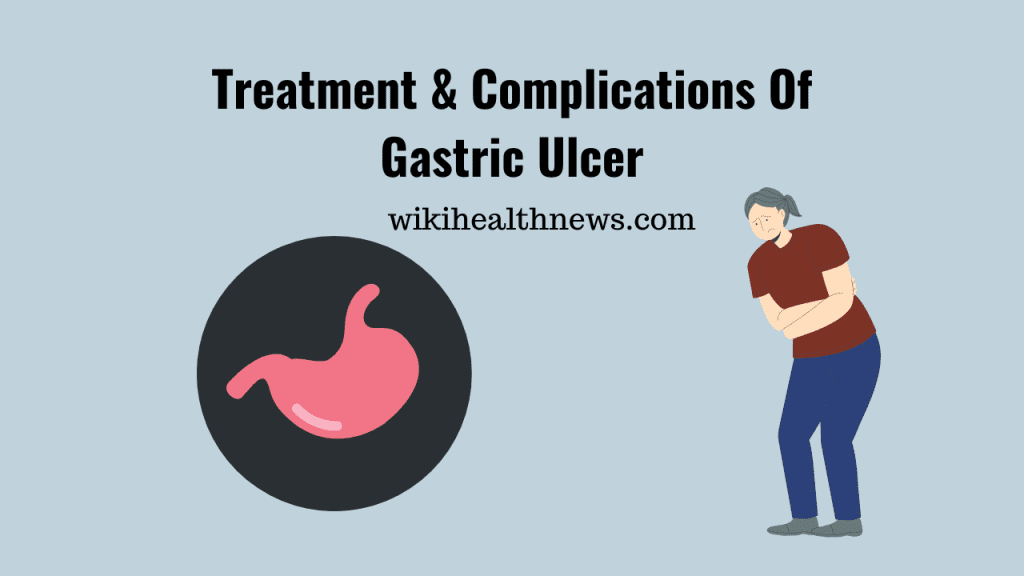
Treatment for gastric ulcer:
Ulcers can heal if they are get rest from the factors that created them. The doctor treat uncomplicated ulcers with some combination of medicines to reduce stomach acid, which is a coat and protect the ulcer during healing and kill other bacterial infection that may be involved. Medicines may include:
- Antibiotics. If H. pylori were identified in the digestive tract, the doctor will prescribe some combination of antibiotics to treat and kill the bacteria, based on the medical problem and condition. Most commonly prescribed antibiotics are tetracycline, metronidazole, clarithromycin and amoxicillin.
- Proton pump inhibitors (PPIs). This kind of drugs helps to reduce the stomach acid and protect the stomach lining. Some PPIs are esomeprazole, dexlansoprazole, lansoprazole, omeprazole, pantoprazole and rabeprazole.
- Histamine receptor blockers (H2 blockers). This kind of drugs will reduce stomach acid by blocking the chemical messenger that tells the body to produce it (histamines). H2 blockers are famotidine, cimetidine and nizatidine.
- Antacids. This is very commonly used over-the-counter medicines which help to neutralize stomach acid. They will bring some symptom relief, but they aren’t enough to heal the ulcer. They also might combine with some antibiotics.
- Cytoprotective agents. These medicines will help to cover and protect the stomach lining. They are sucralfate and misoprostol.
Prevention of a gastric ulcer:
- Decreases the usage of NSAID, if possible. Consider whether acetaminophen will substitute. If taking NSAIDs for medical reasons, talk to the doctor about decrease of dosage or switching other medication.
- Decrease other irritants that may contribute strong stomach acid or erode the stomach lining, like smoking and alcohol use.
Read more






